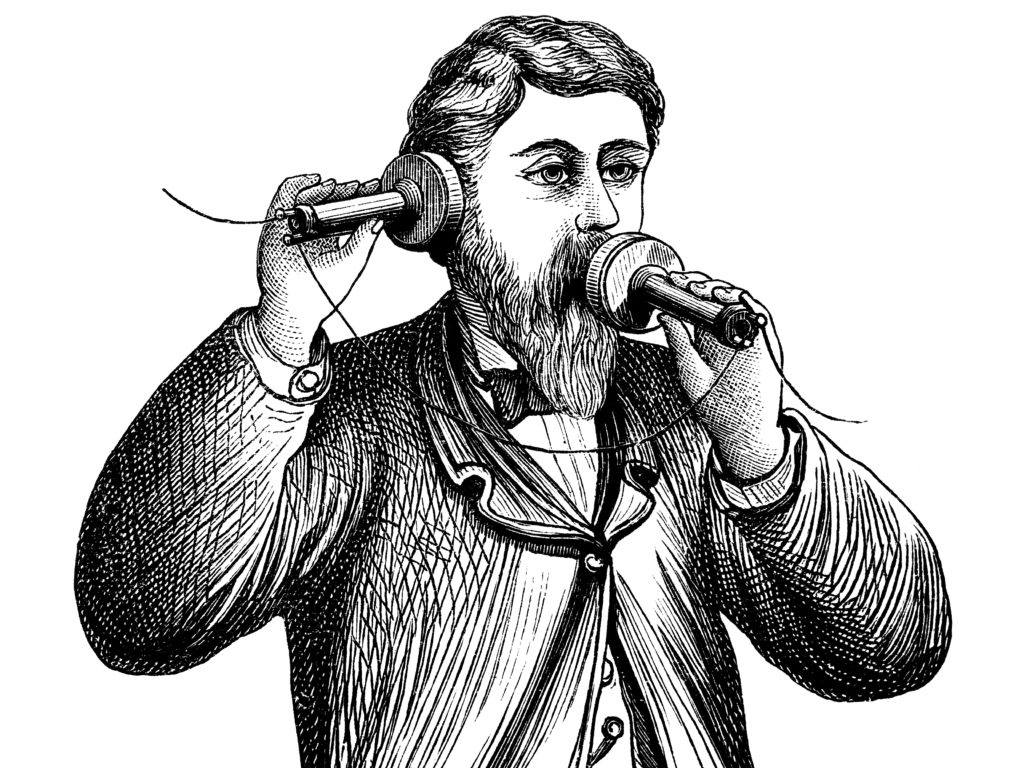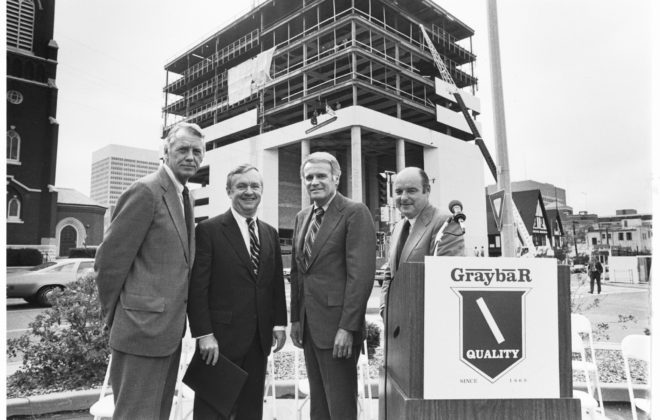Elisha Gray and the Telephone: Does This Ring a Bell?
Alexander Graham Bell is known as the inventor of the telephone. But should credit belong instead to Graybar co-founder Elisha Gray? Historians have debated that question for years.
On Valentine’s Day 1876 Bell and Gray each submitted an application to the U.S. Patent Office for a device to transmit the human voice over a wire—in other words, a telephone. On March 7, 1876, after reviewing their competing applications, the patent office awarded a patent to Bell, saying his papers had arrived two hours before Gray’s.
Gray sued, claiming that Bell had stolen his idea, and took his case all the way to the U.S. Supreme Court, where he lost. As a result Bell obtained what was perhaps the most valuable patent in history and won enduring fame as the telephone’s creator.

Gray had many supporters who disputed the court’s decision. His application, they insisted, was delivered to the patent office in the morning but remained near the bottom of the in-basket until the afternoon. According to this version, Bell’s application was filed at noon, but Bell’s lawyer requested that it be entered immediately in the receipt book—hence, Bell’s narrow victory.
When Gray died in 1901, his obituary in the New York Times predicted he would “receive full justice at the hands of future historians by being immortalized as the inventor of the speaking telephone.” That did not happen.
Two books have revived the controversy with a vengeance. The Telephone Patent Conspiracy by A. Edward Evenson, published in 2001, says Gray may have filed his application with the patent office before Bell, but a clerk with a drinking problem was bribed by Bell’s wealthy backers—without Bell’s knowledge—to change the order of the filings and give Bell the victory.
The Telephone Gambit by science journalist Seth Shulman, published in 2008, goes further. It claims that Bell—aided by unprincipled attorneys and a corrupt patent examiner—got a sneak look at Gray’s application and quickly copied Gray’s idea before submitting his own papers. According to Shulman, Bell’s lawyers then had the order of the filings changed so that Bell’s came first.
Regardless, Bell and Gray are only two of many claimants. In Germany a science teacher named Philipp Reis is generally credited as the telephone’s inventor. He demonstrated his device in 1861.
Italian textbooks have long taught that Antonio Meucci, a Florentine immigrant living in New York, invented the telephone in 1871. In 2002, at the urging of Italian-American groups, the U.S. House of Representatives passed a resolution officially recognizing Meucci as the true inventor of the telephone. Passions ran high. The Italian newspaper La Repubblica lauded the vote and said Bell was a “cunning Scotsman” and “usurper” who had stolen Meucci’s idea. The House of Commons in Canada, where Bell lived as a young man, responded by adopting a motion recognizing Bell as the true inventor. A member of the House of Commons said, “The Minister [of Canadian Heritage] must be aware now of the silly goings on in the United States capital where the U.S. House of Representatives passed a motion claiming that somebody other than Alexander Graham Bell invented the telephone.” The reality is that great inventions are often the work of many people. But the one who gets to the patent office first, even by minutes, usually receives all the credit and reaps the financial rewards. If Gray’s papers had arrived officially before Bell’s, would Graybar today be Graybar Telephone Company? One can only imagine.



